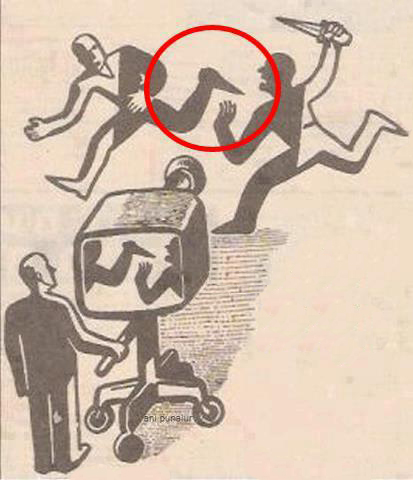
Will you get the job? Will you be able to pay your bills? Will you be able to live your dreams?
As I’m listening to our students voice their worries about going to university, graduates from uni struggling to find jobs that they trained for, and the rumblings from the science field, I’m taking a step back to look at Insanitek’s hiring practises. A while back I worked with an HR professional to create a model to hire on. It was a traditional method of having people put in their resumes, then I interview those with matching skills.
The problem I kept running into is that the people with the skills often don’t get along well with our very free-flowing model. We like things to be more based on curiosity, exploration, and self-directed.
Take our science journalist position for example: As a freelance writer, you pick the topic and make a pitch. Our editor makes sure that the pitch isn’t the same as anything else in the site so far. If it is, they show you the articles and ask you to work around it in a way that you choose (go further into the discussion, make a debate, go somewhere else entirely with the idea, etc.) Or, they assign it to be worked on. We don’t remind you, and we communicate with status changes in the dashboard so emails don’t get lost. They finish the piece when they finish the piece. It gets published when it meets the minimal requirements — grammar that is up to par, a feature image to make things more interesting, a well written statement/argument, and citations to back it all up.
It’s a matter of direction, not micromanagement or control.
Frankly, this is how we like it. It helps breed confidence, creativity, ingenuity, and a sense of pride in one’s work. Everyone gets credit for their own work, learns from their own failures, and learn from each other. It’s a great environment for those that love to explore. But it’s not for everyone. We found that out when people would often falter when left to their own devices. Thus, we’re going to change things up in the way we hire in hopes to find better matches for our “insane” model.
It’s simple: We’re going backward.

Passion can drive everyone further.
That means that instead of looking at skills first, we’re looking at those closer to last. Instead, we’re starting with passion while hiring.
Passion is a key ingredient of the successful people here at Insanitek. Shockingly, it’s not something that a lot of applicants have had. They want a job, some money, and, well… I’m not sure other than that. These types of people don’t last very long here because they don’t have an inner fire that keeps them geeking along.
Maturity is another key ingredient to success here because everything is self-directed with minimal interference. That means that you have to really want it in order to stick with it. We’re here as support, but we’re not going to take your hands and walk you through everything, every step of the way. If one day you want to research dinosaurs, but a few months later you’re wanting to debunk the paranormal in a post, then a few months after that you want to give a hand in our scicomm group, it’s your call. We’ll help, but ultimately the ball is in your court. In my mind, as long as you finish the projects you start, it’s all good.
You also need maturity to follow your ideas, break a few rules, and then deal with the world once you present your findings. Or write an argument. Maturity also provides a thick skin against criticism that comes your way — and it will, both in the constructive from us and destructive from those of differing opinions. Maturity is an indispensable tool that is acquired through experience, not something we can really teach.
Skills we can teach.
Insanitek is fundamentally about exploration and teaching. This means if your skills are lacking, but the passion and maturity are there, we will do everything in our power to help you learn the skills. We don’t do “unpaid” internships, either. We have a pay scale that allows for us to pay you while you learn, try, and master a skill. Thus, skills are not part of the hiring, but rather part of the pay scale.
Why this set up? Well, I don’t believe in keeping slaves, so no unpaid internships. However, I’m investing a lot of time and money, risking reputation and connections to train people. That’s why the pay is less, chance to “climb the ladder” quickly, and get more pay. It’s all based on trust that the trainee really is passionate, mature, and wants to learn. But it’s not based on slavery.
That’s it.
But… what about discrimination?

In our little sphere of reality, the media bias does not hold for racism/genderism/sexism/anythingism.
Sounds all noble until some special snowflake asks me about the “ratio of X to Y” and it’s not even. So, I’m going to come right out and address this purple argyle elephant in the room. This need to address discrimination became even more clear after getting a whiff of a study showed there is no hiring bias in the tech industry, but popular opinion clings to it like a religious need. Passion and maturity are personality traits. They don’t belong to any race, gender, sexual orientation, or sexual preferences. Thus, these discrimination factors don’t matter a whole lot to us, and frankly we just don’t care to register them. These factors will not be part of our hiring practise.
So how do we deal with discrimination problems when they come up?
Well, these problems haven’t come up yet in the 2.5 years we’ve been in business. I attribute that to the amount of passion coupled with the level of maturity that people have. When you are too busy geeking out about passions, you don’t have a whole lot of time to obsess over other things. And when someone at Insanitek feels abused by the outside world, they come here and feel an unbreakable bond. They know they have true friends that embrace them, teachers that want to see them safe, and a place to explore freely.







